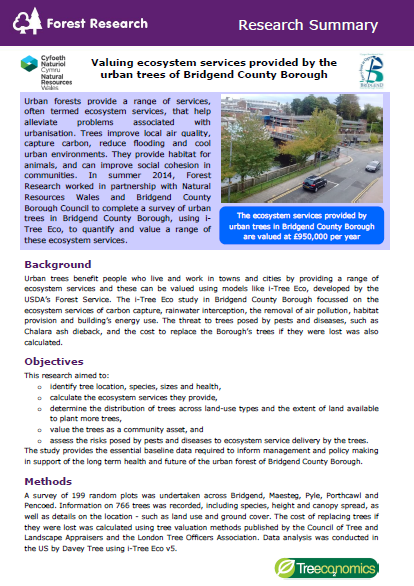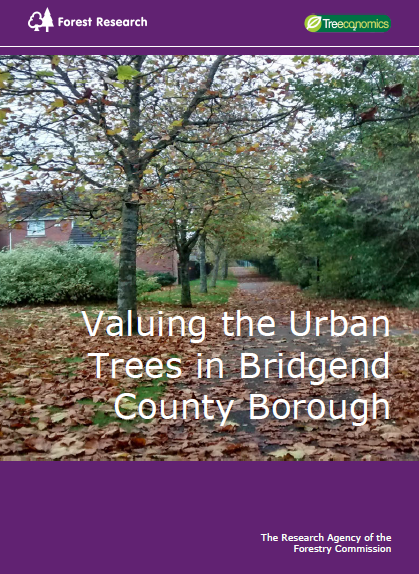Summary
About i-Tree Eco Bridgend
In summer 2014, Forest Research’s Land Regeneration and Urban Greenspace Research Group worked in partnership with Bridgend County Borough Council (CBC) and Natural Resources Wales to complete a survey of the urban trees in Bridgend County Borough (CB).
This i-Tree Eco survey was used to measure the natural capital of Bridgend CB’s urban trees and value the ecosystem services that they provide.
The ecosystem services considered were: carbon capture, rainwater interception, and the removal of air pollution.
The impacts of trees on the energy use by buildings in Bridgend CB, the public amenity value of the trees, and the role of the trees and shrubs of Bridgend CB in providing habitat for insects was also determined.
This work was funded by Bridgend County Borough Council (CBC) and Natural Resources Wales.
Research Objectives
This research aimed to:
- identify tree location, species, sizes and health
- calculate the ecosystem services they provide
- determine where more trees could be planted
Findings and Recommendations
The ecosystem services provided by Bridgend CB’s urban trees were valued at £950,000 per year.
This study demonstrates the value that urban trees provide to all who live in, work in and visit Bridgend CB.
Amongst others, a key finding of the study was that mature, large stature trees, such as limes, oaks and pines and which provide more ecosystem services per than small stature tree species, were generally lacking across the county borough.
A long-term strategy to conserve the current stock of young large stature trees is required to improve the overall age and size structure of Bridgend CB’s urban forest.
For further details and results see the Full Report and the Summary in the Documents section (below).
Downloads
Further Information
Funding & Partners
- Bridgend County Borough Council
- Natural Resources Wales


